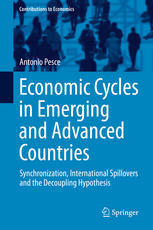

Most ebook files are in PDF format, so you can easily read them using various software such as Foxit Reader or directly on the Google Chrome browser.
Some ebook files are released by publishers in other formats such as .awz, .mobi, .epub, .fb2, etc. You may need to install specific software to read these formats on mobile/PC, such as Calibre.
Please read the tutorial at this link: https://ebookbell.com/faq
We offer FREE conversion to the popular formats you request; however, this may take some time. Therefore, right after payment, please email us, and we will try to provide the service as quickly as possible.
For some exceptional file formats or broken links (if any), please refrain from opening any disputes. Instead, email us first, and we will try to assist within a maximum of 6 hours.
EbookBell Team

4.8
54 reviewsThis book contributes to the debate on the decoupling of emerging economies from the advanced economies with a new, empirical investigation approach. Taking counterfactual experiments performed using a time-varying panel VAR model, the author argues that over the last thirty years, emerging economies have become less vulnerable to shocks spreading from advanced economies. This resilience to external shocks has changed in a non-progressive manner over time, with phases of greater resilience followed by others of lower resilience and vice versa. This research outlines its wave-like path and presents new results that contribute to the discussion.